 W
WMajor-General Sir Robert Bellew Adams was a Scottish general of the Indian Army and recipient of the Victoria Cross, the highest and most prestigious award for gallantry in the face of the enemy that can be awarded to British and Commonwealth forces.
 W
WCharles Robert Whorwood Adeane was a British army officer.
 W
WSir George William Agnew, 2nd Baronet, JP, was a British art dealer, publisher and Liberal politician.
 W
WFrancis John Childs Ganzoni, 1st Baron Belstead, was a Conservative Party politician in England.
 W
WForde Everard de Wend Cayley was a British physician who was physician superintendent at Bevendean Hospital for Chest Diseases. He survived great deprivations after spending time in a Japanese prisoner of war camp during the Second World War.
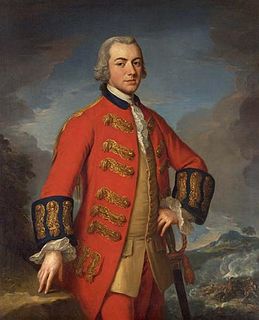 W
WGeneral Sir Henry Clinton, KB was a British army officer and politician who sat in the House of Commons between 1772 and 1795. He is best known for his service as a general during the American War of Independence. First arriving in Boston in May 1775, from 1778 to 1782 he was the British Commander-in-Chief in North America. In addition to his military service, due to the influence of his cousin Henry Pelham-Clinton, 2nd Duke of Newcastle, he was a Member of Parliament for many years. Late in life he was named Governor of Gibraltar, but died before assuming the post.
 W
WCharles Cornwallis, 1st Marquess Cornwallis,, styled Viscount Brome between 1753 and 1762 and known as the Earl Cornwallis between 1762 and 1792, was a British Army general and official. In the United States and the United Kingdom he is best remembered as one of the leading British generals in the American War of Independence. His surrender in 1781 to a combined American and French force at the Siege of Yorktown ended significant hostilities in North America. He later served as a civil and military governor in Ireland, where he helped bring about the Act of Union; and in India, where he helped enact the Cornwallis Code and the Permanent Settlement.
 W
WVesey Alfred O'Davoren (Davoren), British soldier and film actor.
 W
WGeorge Elers was a Captain in the Suffolk Regiment. The events of his life are preserved in his collected memoirs which were posthumously published as The Memoirs of George Elers.
 W
WWilliam Rowley Elliston OBE,, was a British judge and Liberal Party politician.
 W
WGeneral Sir Richard England, was a British Army officer, born at Detroit, which was then part of Upper Canada. During the Napoleonic Wars he saw active service in Walcheren, Sicily, and at Waterloo, before commanding regiments and divisions in the Crimean War and in India.
 W
WColonel Charles James William Grant VC was a Scottish recipient of the Victoria Cross, the highest and most prestigious award for gallantry in the face of the enemy that can be awarded to British and Commonwealth forces.
 W
WMajor General Sir Richard Hebden O'Grady-Haly, was a British Army officer who served as General Officer Commanding the Militia of Canada from 1900 to 1902.
 W
WHarold Ridley Hooper was an English architect based in Ipswich, Suffolk.
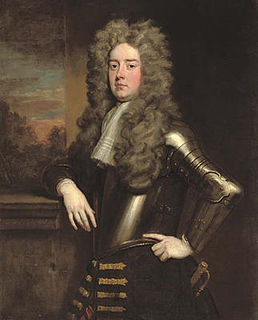 W
WEdward Henry Lee, 1st Earl of Lichfield was an English peer, the son of a baronet, who at 14 years of age married one of the illegitimate daughters of King Charles II, Charlotte Lee, prior to which he was made Earl of Lichfield. They had a large family; Lady Lichfield bore him 18 children. He was a staunch Tory and followed James II to Rochester, Kent after the king's escape from Whitehall in December 1688. His subsidiary titles were Viscount Quarendon and Baron Spelsbury.
 W
WCanon William Murrell Lummis MC was a British military historian most noted for the research he conducted on the Victoria Cross, the Charge of the Light Brigade, and Rorke's Drift.
 W
WMajor Kenneth George Mayhew is a British Army veteran of the Second World War. Mayhew is one of the only four living knights of the very exclusive Military William Order, the highest honour of the Kingdom of the Netherlands.
 W
WHenry Howard, 7th Duke of Norfolk, KG PC Earl Marshal was an English nobleman, politician, and soldier. He was the son of Henry Howard, 6th Duke of Norfolk and Lady Anne Somerset, daughter of Edward Somerset, 2nd Marquess of Worcester and Elizabeth Dormer. He was summoned to the House of Lords in his own right as Baron Mowbray in 1678. His unhappy marriage was a subject of much gossip, and ended in divorce.
 W
WGeneral George Augustus Herbert, 11th Earl of Pembroke and 8th Earl of Montgomery KG PC was an English peer, army officer, and politician.
 W
WGeneral Richard Philipps was said to have been in the employ of William III as a young man and for his service gained the rank of Captain in the British army. He served at the Battle of the Boyne in 1690 and made the rank of Lt. Col. in 1712. He raised the 40th Regiment of Foot.
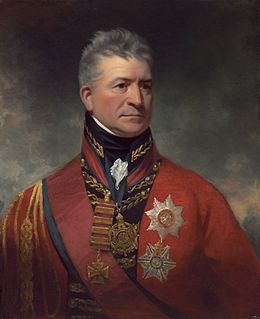 W
WLieutenant-General Sir Thomas Picton was a Welsh officer of the British Army who fought in the Napoleonic Wars. According to the historian Alessandro Barbero, Picton was "respected for his courage and feared for his irascible temperament". The Duke of Wellington called him "a rough foul-mouthed devil as ever lived", but found him capable.
 W
WMajor-General Sir Robert Henry Sale GCB was a British Army officer who commanded the garrison of Jalalabad during the First Afghan War and was killed in action during the First Anglo-Sikh War.
 W
WDavid Thompson Seymour was a soldier and the inaugural commissioner of Queensland Police, in office from 1864 to 1895.
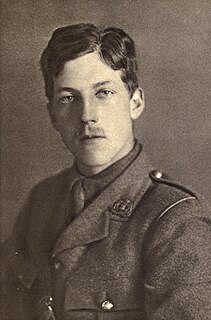 W
WCaptain Charles Hamilton Sorley was a British Army officer and Scottish war poet who fought in the First World War, in which he was killed in action during the Battle of Loos in October 1915.
 W
WJohn Keith Stanford OBE MC (1892–1971) was a British writer of the mid-20th century.
 W
WGeneral Sir Thomas Trigge was a British army officer who began his career in 1759 during the Seven Years' War, as an ensign in the 12th Regiment of Foot. He remained with the regiment for the next 36 years, and commanded it during the Great Siege of Gibraltar.
 W
WColonel James Archibald Stuart-Wortley-Mackenzie, 1st Baron Wharncliffe, PC was a British soldier and politician. A grandson of Prime Minister John Stuart, 3rd Earl of Bute, he held office under Sir Robert Peel as Lord Privy Seal between 1834 and 1835 and as Lord President of the Council between 1841 and 1845.
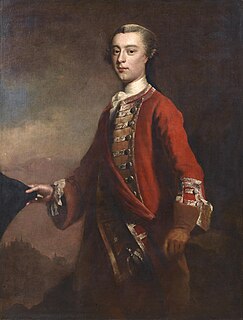 W
WJames Wolfe was a British Army officer known for his training reforms and remembered chiefly for his victory in 1759 over the French at the Battle of the Plains of Abraham in Quebec as a major general. The son of a distinguished general, Edward Wolfe, he received his first commission at a young age and saw extensive service in Europe where he fought during the War of the Austrian Succession. His service in Flanders and in Scotland, where he took part in the suppression of the Jacobite Rebellion, brought him to the attention of his superiors. The advancement of his career was halted by the Peace Treaty of 1748 and he spent much of the next eight years on garrison duty in the Scottish Highlands. Already a brigade major at the age of 18, he was a lieutenant-colonel by 23.
 W
WField Marshal Garnet Joseph Wolseley, 1st Viscount Wolseley, was an Anglo-Irish officer in the British Army. He became one of the most influential and admired British generals after a series of successes in Canada, West Africa, and Egypt, followed by a central role in modernizing the British Army in promoting efficiency. He served in Burma, the Crimean War, the Indian Mutiny, China, Canada and widely throughout Africa—including his Ashanti campaign (1873–1874) and the Nile Expedition against Mahdist Sudan in 1884–85. Wolseley served as Commander-in-Chief of the Forces from 1895 to 1900. His reputation for efficiency led to the late 19th century English phrase "everything's all Sir Garnet", meaning, "All is in order."
 W
WWoodrow Lyle Wyatt, Baron Wyatt of Weeford was a British politician, author, journalist and broadcaster, close to the Queen Mother, Margaret Thatcher and Rupert Murdoch. For the last twenty years of his life, he was chairman of the state betting organisation The Tote.